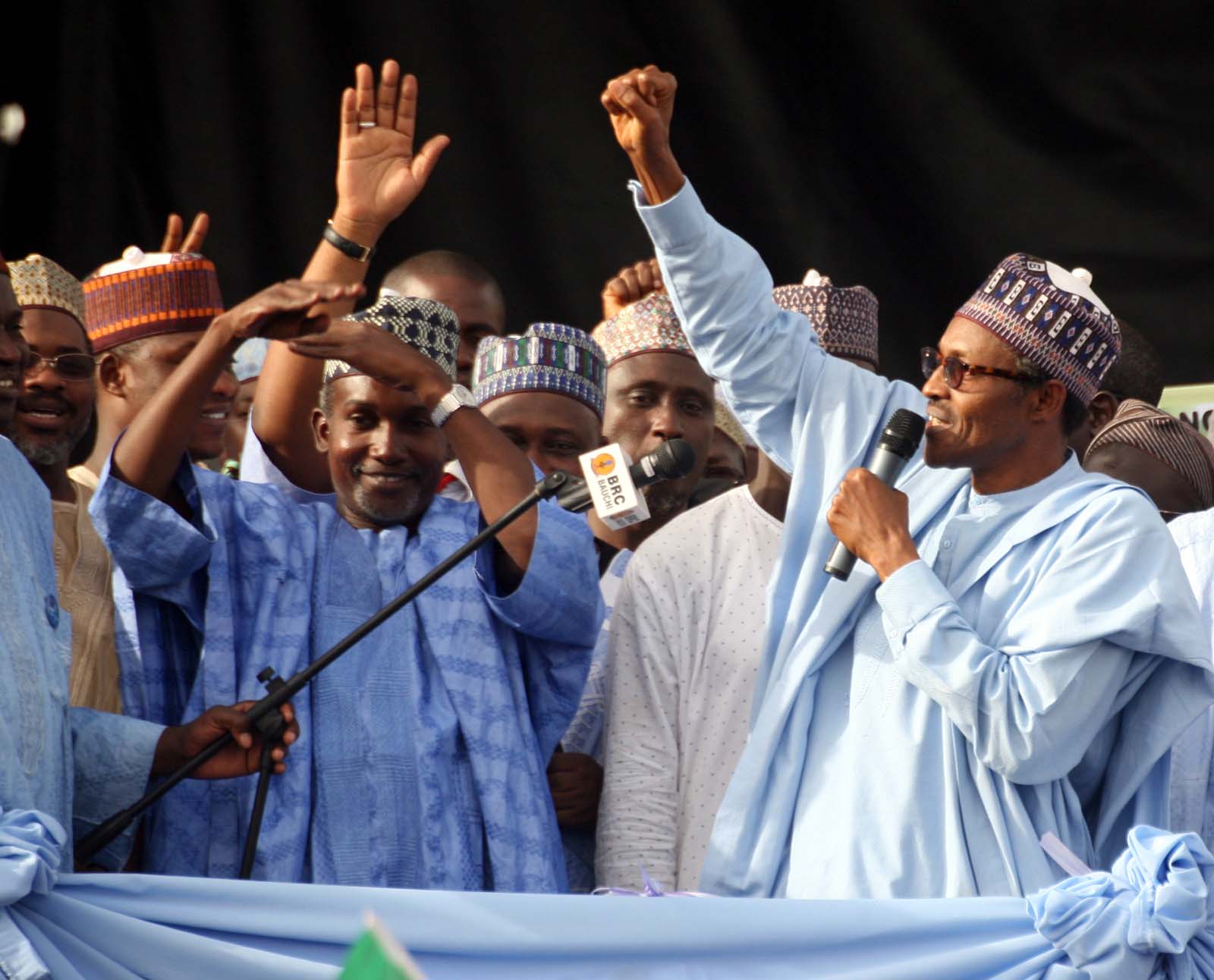by Douglas Anele
One can accept that a doctorate degree does not necessarily translate into capacity to lead without going to the ludicrous extent of disparaging the discipline of the holder. And if a doctorate in Zoology was as inconsequential as Dr. Sobowale makes out, what would he say about a presidential candidate with ordinary school certificate who never improved himself academically since leaving office over thirty-one years ago and whose responses to relatively simple questions concerning contemporary approaches to economic management are completely non sequitur?
Fashola’s remarks about the relevance of the educational credentials of Mr. President and his Vice are even more preposterous, a classic illustration of how deformed political calculation can warp the sense of reasoning of a professional. Having accused President Jonathan of not having used his high academic qualifications to address “our challenges,” Fashola charged that the Vice President is an architect who cannot construct roads! One can as well argue that Fashola is a lawyer who cannot write good textbooks in public administration. At any rate, since when did architects become civil or construction engineers? Fashola’s new found courage to disrespect the office of both the President and Vice President is indicative of the intoxicating effect of political power and its ability to engender the fallacy of ignoratio elenchiin political discourse.
At last, we come to the much-orchestrated anti-corruption credentials of Gen. Buhari, the platform on which his campaign largely rests. Because of his jack-boot approach to the fight against financial rascality and corruption in the Second Republic, Nigerians believe that Buhari has the iron will to fight corruption. Of course, it is easy to be carried away, just as I was for some time, by the summary lengthy jail sentences handed to politicians by the military tribunals set up by his government. But with the benefit of hindsight, relatively little was achieved by Buhari in terms of institutional bulwarks against corruption. Indeed, largely because of his highly predictable authoritarian method, public officials afterwards invented more efficient and imaginative ways of siphoning public funds, as exemplified in the successor regime of Gen. Ibrahim Babangida.
In every country there are corrupt public officials; but the key question is whether the method used by Buhari in 1984, though short-lived, can work at this time, considering that (1) his WAI programme was carried out when he ruled with military decrees and judgments were passed on accused persons without the rigours of judicial processes by military tribunals, (2) presently, there is a National Assembly with oversight functions on the executive branch, which places constraints on the powers of the President and (3) Buhari must reckon with the judiciary which has constitutional powers to adjudicate in matters brought before it, including corruption.
Those who believe that jailing corrupt officials on its own is the best way to tackle corruption, without establishing and strengthening institutions that make it harder to commit the act, and when committed to escape with the loot, are naive. Corruption in Nigeria has become so sophisticated with the use of new information and communication technologies (ICTs) such that clever perpetrators of graft can easily evade the antiquated method Buhari is used to. Besides, the fight against corruption cannot succeed if the legislature and the judiciary do not play their part.
Have Buhari’s supporters considered the possibility that Buhari as President, members of the National Assembly and the judiciary may differ on the best approach to the issue of corruption? Does Buhari have the requisite emotional intelligence to work productively with legislators who might not agree with his anti-corruption strategy? What radical solution does he have to check corruption in the judiciary? My point is this: in fighting corruption these days, it is just not enough to put people in prison; it is more important to create smart institutions and processes that would make corruption difficult and unrewarding. This requires an imaginative leader with appropriate repertoire of cognitive and emotional intelligence which Buhari, as a seventy-two year old retired military officer and dyed in the wood conservative, might not have.
But is Buhari really totally immune from corruption? Can the APC presidential candidate honestly claim that as federal commissioner for petroleum resources, military head of state and PTF chairman, he was able to eliminate corruption? Certainly not: Femi Aribisala and others have exposed the dark secrets of how under his watch $2.8 billion belonging to NNPC was moved from Midland Bank in England to a private account and how the Nigerian Television Authority unjustly dismissed Vera Ifudu who reported the matter. We have already referred to the fifty-three suitcases of former Emir of Gwandu that were illegally allowed to pass through Customs by Buhari’s aide-de-camp. Now, the most recent mud on Buhari’s incorruptibility reputation is the executive summary of the report of the interim management committee from July 1999 to April 2000 set up by former President Olusegun Obasanjo to look into the operations of PTF when Gen. Buhari was in charge. The main conclusion of the report is that there is a “colossal loss” of twenty five billion, seven hundred and fifty eight million, five hundred and thirty two thousand four hundred and forty eight naira. So, if Buhari cannot stop corruption in NNPC and PTF, what is the guarantee that he can minimise let alone eliminate corruption in the country if elected President?
There are other aspects of Buhari’s soft underbelly that vitiate his presidential ambition but which we cannot present here due to the need for brevity. He should retire peacefully and work for the liberation of Northern youths from illiteracy, poverty, unemployment and enslavement to feudalistic Islamic fundamentalism.
Concluded.
.Dr. Anele teaches at the University of Lagos.
The opinions expressed in this article are solely those of the author.







